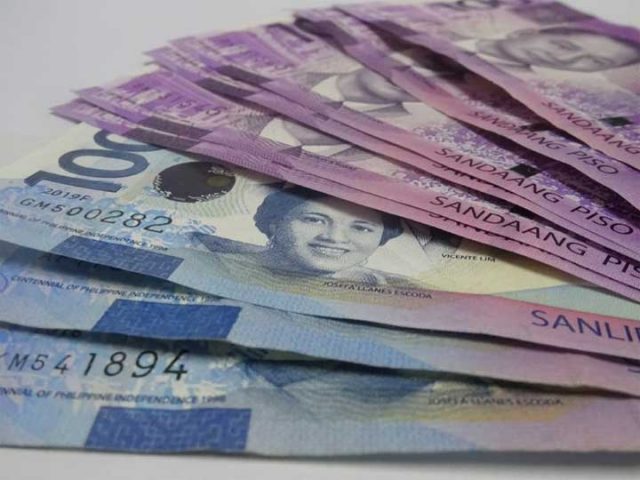Gov’t can afford to ramp up stimulus, economists say

THE government should tap the huge war chest built up during the pandemic and ramp up its stimulus spending to speed up the economy’s recovery, analysts said.
ING Bank N.V. Manila Senior Economist Nicholas Antonio T. Mapa said on Thursday said that the National Government has a “whopping” P1.6 trillion in its demand deposit account, or the Treasury single account (TSA), “sitting idly” in the central bank that can be tapped.
He said the existing balance in the TSA has been built up to an all-time high in July during the pandemic from just P200 billion in 2019, when the state delivered a huge, last-minute spending push to end the year.
“It appears that the National Government has been ‘warchesting’ and building up quite a huge amount of funds. However National Government expenditures remain modest while growth momentum stalls anew,” Mr. Mapa said in a note to journalists sent via e-mail.
He estimated the balance of the account nearly matches the excess liquidity in the financial system that is going nowhere with bank lending still muted.
“With growth momentum faltering, calls for an aggressive fiscal fight back have been mounted time and again with authorities oftentimes citing the lack of funding for any such additional spending or a third round of Bayanihan,” he said.
The government has ramped up borrowings to fund its ballooning spending plan and make up for lower tax collections since last year, pushing its debt pile to an equivalent of 60% of gross domestic product (GDP) as of end-June.
“And yet the reason cited by authorities remains the same: there are no funds,” Mr. Mapa added.
The monetary stimulus unleashed by the central bank needs to be supported by another round of fiscal stimulus to restore the economy, Security Bank Corp. Chief Economist Robert Dan J. Roces said in a Viber message.
“It looks like BSP [will be] on hold for longer but monetary stimulus will likely need a complementary fiscal push. This could come by way of a third stimulus package that could help shore up households’ and businesses’ demand for goods and services as we slowly recover,” he said.
The Bangko Sentral ng Pilipinas has assured it will “continue to do what is needed for as long as necessary — until there is hard evidence of full recovery.”
In early June, the House of Representatives approved a P401-billion stimulus under House Bill 9411 or the Bayanihan to Arise as One Act (Bayanihan III). Its counterpart measure is still pending at the Senate committee level.
Finance Secretary Carlos G. Dominguez III in a Viber message to reporters on Thursday said the reserved funds in the TSA is enough to pay for the programmed spending of government agencies.
“We are prepared as the agencies ramp up their spending activities and for timely payment of our obligations as they fall due,” he said.
Latest budget data showed state agencies, including those released to local government units, used 89% of the notices of cash allocation (NCAs) issued to them in the seven months to July, or P2.127 trillion utilized out of P2.381 trillion released during the period.
While the utilization rate was higher than the 76% usage rate seen in the same period last year at the height of the pandemic, agencies still recorded P253.41 billion in unused NCAs — the disbursement authority issued to state agencies allowing them to withdraw funds from the Treasury to pay for their projects and programs.
Actual spending by the National Government also fell short of its target in the first half based on a separate data from the Treasury. Overall government spending went up by 9.6% year on year to P2.206 trillion in the first half, but missed its P2.44-trillion target for the period by 10%.
Meanwhile, its debt stock climbed by 0.9% to P11.166 trillion as of end-June, or equivalent to 60.4% of GDP, hitting the 60% threshold which rating agencies consider as manageable debt level.
The Development Budget Coordination Committee on Wednesday cut the growth target for the year to 4-5% from 6-7% due to the renewed lockdowns and the recent surge in coronavirus infections.
Mr. Mapa said they are expecting an even slower 3.8% expansion for the entire year as the lockdowns hamper household consumption and investments and government continues to rein in spending.
